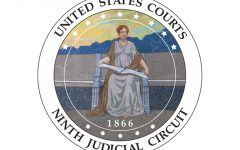
CLF leader Lorena Gonzalez. (Photo: Kevin Sanders for California Globe)
Federal Court Uses Legislator’s Statements to Allow Lawsuit Challenging State Statute
Technically, this case is not one of statutory construction
By Chris Micheli, June 11, 2023 3:25 am
In the March 2023 decision by the U.S. Court of Appeals for the Ninth Circuit of Olson v. State of California, 62 F.4th 1206 (9th Cir. 2023), the federal appellate court based its decision squarely on the public statements made by a former legislator who authored the bill at issue in the appeal. The decision is interesting to read not only because of the subject matter of the bill, which was a hotly contested measure in the Legislature, but also because of its use of an uncommon means of considering legislative history.
Assembly Bill 5 by then-Assemblywoman Lorena Gonzalez (D-San Diego), which dealt with the misclassification of independent contractors and the codification of the California Supreme Court’s Dynamex Operations West decision, was challenged by two app-based drivers on several grounds and the federal appellate court ruled that the statute may violate the equal protection rights of drivers who are independent contractors for gig companies. The federal appellate court ruled that the plaintiffs had alleged that AB 5 unfairly targets app-based drivers and the companies that employ them, such as Uber and Lyft.
What makes the reading of the case more interesting is that the Ninth Circuit panel found that the Legislature that expressed publicly a desire to harm app-based drivers and their employers. The court specifically cited the statements made by former Assembly Member Lorena Gonzalez had singled out and publicly disparaged app-based companies, which was evidence that the primary purpose of AB 5 was based on animus toward these companies.
The appellate court wrote, “The sponsor of A.B. 5, California Assemblywoman Lorena Gonzalez, published a Washington Post Op-Ed in which she proclaimed that A.B. 5 would “guarantee . . . workers the normal rights and privileges—and benefits— enjoyed by most employees” that “‘gig’ companies such as Uber, Lyft, DoorDash, Handy and others” do not provide to “‘gig’ workers.” See Lorena Gonzalez Opinion, The Gig Economy Has Costs. We can No Longer Ignore Them, Wash. Post (Sept. 11, 2019).
Moreover, the court said, “according to a December 2019 Los Angeles Times Article, Assemblywoman Gonzalez was “open to changes in [A.B. 5] next year, including an exemption for musicians — but not for app-based ride-hailing and delivery giants.” Margot Roosevelt, New Labor Laws Are Coming to California. What’s Changing in Your Workplace? (New Labor Laws), L.A. TIMES (Dec. 29, 2019). And, the federal court noted, “California Assemblyman Anthony Rendon tweeted, “[t]he gig economy is nothing new. It’s a continuation of hundreds of years of corporations trying to screw over workers. With [A.B. 5], we’re in a position to do something about that.”
As a result, the Ninth Circuit panel ruled that, “Even under this ‘fairly forgiving’ standard of review, we conclude that, considering the particular facts of this case, Plaintiffs plausibly alleged that A.B. 5, as amended, violates the Equal Protection Clause for those engaged in app-based ride-hailing and delivery services.”
The court also stated, “We recognize that we recently rejected an equal protection challenge to A.B. 5 in American Society of Journalists and Authors. However, Plaintiffs’ plausible allegations of Assemblywoman Gonzalez’s animus against them distinguish the two cases.”
In addition, according to the federal appellate court, “Plaintiffs plausibly allege that the primary impetus for the enactment of A.B. 5 was the disfavor with which the architect of the legislation viewed Uber, Postmates, and similar gig-based business models.
However, the publicly articulated purpose of A.B. 5 was to “ensure [that] workers who are currently exploited by being misclassified as independent contractors instead of recognized as employees have the basic rights and protections they deserve.” A.B. 5 § 1(e). But, as Plaintiffs plausibly alleged, the exclusion of thousands of workers from the mandates of A.B. 5 is starkly inconsistent with the bill’s stated purpose of affording workers the “basic rights and protections they deserve.”
Again, noteworthy from my perspective is that, historically, California courts have disfavored using an individual legislator’s statements (even the bill’s author) to ascertain the intent of the Legislature, unless those statements are known to have been made to the Legislature “as a whole.” For example, were those statements made on the Floor of the Assembly or Senate? Were those statements contained in a legislative bill analysis, particularly the floor analysis?
Technically, this case is not one of statutory construction. What makes it interesting, however, is the reliance that the federal court used the bill author’s public statements to support the alleged violation of the plaintiffs’ equal protection rights. Here the federal appellate court gave great weight to the bill author’s statements, which appeared in a national newspaper as well as in a statewide newspaper. There was also a “tweet” from the Assembly Speaker.
In this regard, although the individual legislator’s statements were used to undermine the legitimacy of the statute, the statements were also value by the court, which is a welcome approach by the judicial branch.
- Why Would the Legislature Request? - December 13, 2024
- A Different Type of Legislative Statement? - December 12, 2024
- Service of Summons in California Civil Actions - December 11, 2024





“Animus” does not come close to describing Lorena Gonzales. There are a number of adjectives that do, but they would be inappropriate even on this free speech blog. And then there’s her husband.
Wonder what financial incentives that Lorena received while she was in the legislature and pushing legislation like Assembly Bill 5 for her union cronies?
Glad to know that her words are coming back to bite her in the ass!
Glad to know that her words are coming back to biter her and this bill in its ass!
Here is my take: Statements made by a few union bosses, who pull all the strings of the know-nothing term-limited drones that make up the Democrat super-majority, are statements of legislative intent.
All the legislative marching orders in this state come from the few at the top, who are the unelected power DCC brokers. There are no longer independent legislators in this state. “Election reform” made sure that would happen.
When the Big Guys speak, regardless of the forum, this does come down as holy writ to slavishly follow while the super-majority legislators wile their time feeding off the tax payer dollar, until their term-limited time is up too. And the call from DCC goes out for …….Next?
Doesn’t the “ex post facto” action taken by this legislative cretin to leave her elected post early to take a leadership position at one of the primary beneficiaties of her legislation automatically require a “quid pro quo” legislative review by every governing and legal review body everywhere???
I mean, c’mon, man….
The money and power behind app-based employment is the only factor worth considering in this decision. There are too many interested parties with access to infinite credit and loans backing app-based middle men at every point in our economy.